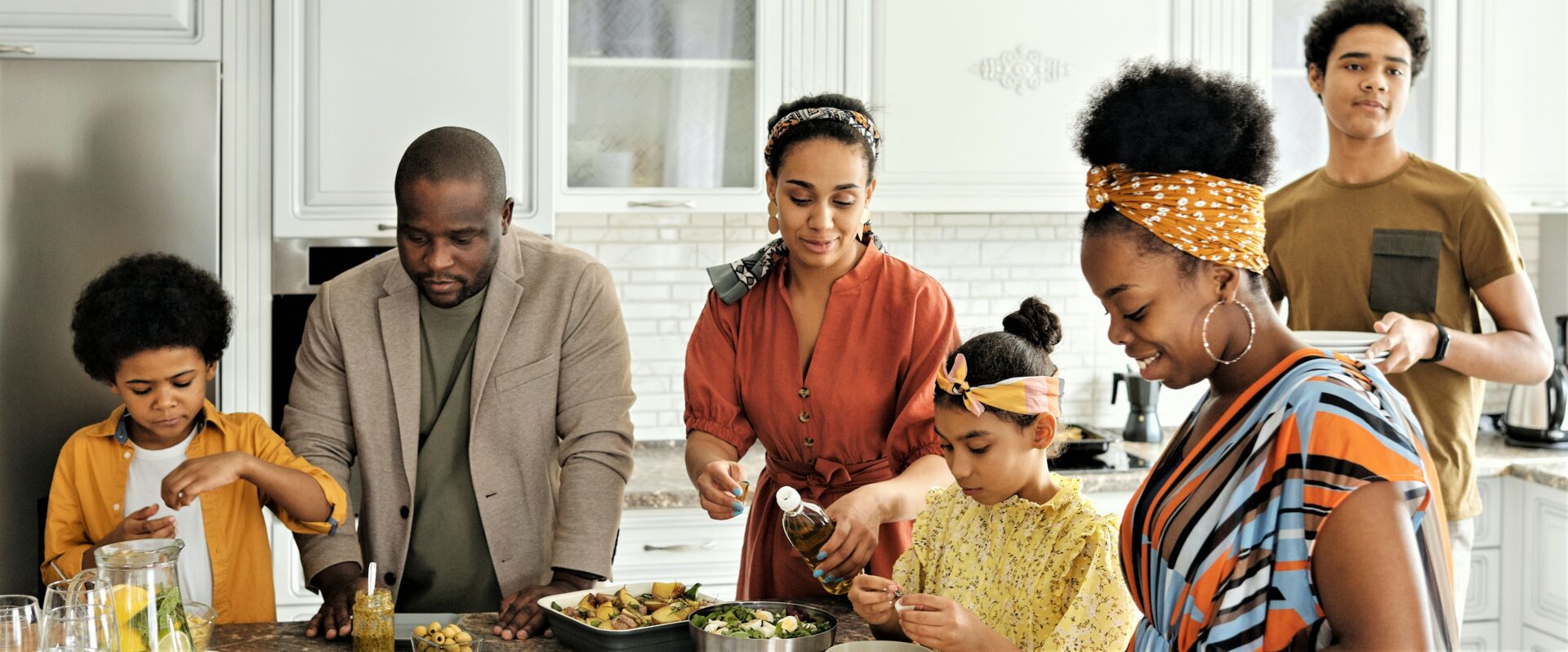While holidays can be a time of wonderful celebration, they can also be stressful and intense (as most of us know). Getting together with family that we might not see regularly throughout the year can also introduce dynamics and emotions that you and your children will want to be aware of. This is especially true when there has been a recent death in the extended family.
Grief has ripples that impact the entire surrounding family and community. It is the job of those who are more distantly connected to be mindful and intentional about supporting those most closely affected by a death. If you have experienced a significant death yourself, you know how important it is to have people show up for you not only during the time period immediately after a loss, but also in the difficult months to come.
We hope you find these tips below helpful in setting you and your children up to be prepared for what grief can look like during holiday get-togethers.
1. Start the conversation early.
Children take time to process new situations, especially those that are emotionally complex. Give your children plenty of time to digest the fact that one of their family members is grieving. Conversations about death will likely bring up a range of questions and worries, so starting the conversation early will give space for these components of your child’s processing and preparedness as well.

Let your kid(s) know ahead of time there may be grieving family members visiting, and what they can expect.
2. Anticipate how grief might show up for others.
Conversations surrounding death will likely bring up a lot of feelings for your child, even if the person who died was not intimately involved in their lives. They might feel nervous about another family member dying, sad for themselves and/or for others, or perhaps surprisingly unaffected. Most likely, whatever initial reaction your child has will not be the only one, as feelings will come and go as they process the conversation.
It’s important they know that whatever feelings they are having are completely okay, and that you are here for them no matter what emotions are present or not present. Be sure to validate their feelings, while also being reassuring. For example, if your child begins to worry about someone else in the family dying, you can say something like, “I know it’s really scary to think about something happening to one of us, and no matter what there will always be people who love you and want to help take care of you. Right now we are all safe and healthy so it’s really not something you need to worry about.”
3. Invite questions.
It is helpful for children to feel as though they have a place to ask whatever questions are on their mind. This can create space for further conversation and alleviate some of the unknowns and anxieties. Remind them that they can always ask you questions, and you will answer honestly. When you first initiate the conversation, you might want to try to be brief and not over-explain, which is something adults sometimes do when they are anxious or uncomfortable themselves. Instead, introduce the conversation, and then allow silence as your child digests and can then respond and ask follow-up questions themselves.
4. Come up with some things your child can say.
We know that there are no perfect words to say to someone who is grieving, but we do want to be allies to those who are in emotional pain. This is a good opportunity to teach our children how to share genuine sentiments in order to let others know we care about them. Finding these words is often difficult for adults, and it certainly isn’t any easier for children. Brainstorm together something your child might feel comfortable saying. You could consider asking them what types of helpful things people have said to them when they have felt difficult emotions in the past, or provide suggestions of ways for them to express their care and condolences in an age appropriate way. Something as simple as “I’m glad to be together” or, perhaps to a cousin, “I’m here for you” can go a long way in helping others know they have support.
5. Give your child permission to talk about the person who died.
Grief sometimes feels like the elephant in the room. But we believe that the elephant gets a lot less heavy when it is acknowledged. People often feel thankful when they are asked questions or others share stories about the person who has died. Let your child know that even though someone has died, they are still an important member of your family, and questions about them or stories are usually welcome. You could even begin sharing some of these stories in a smaller setting with your child, which might help them feel more comfortable doing the same with the larger group.
6. Lastly, grief is messy. Holidays and family time can be messy too. Know that it is not going to be perfect, and when we lower expectations, there is less room for disappointment. Holidays and family traditions can evolve, and it is okay for the holiday to not feel perfect or even positive this year. Remain flexible and open-minded with your experience and your children will follow your lead.
Jenna Wolfson, LCSW, is the Girls Clinical Director at Experience Camps in Pennsylvania. She is a licensed clinical social worker at Wolfson Therapy with a focus on helping children, teens, and adults build skills to better cope with ongoing stressors and challenging emotions. Jenna incorporates evidence-based strategies such as CBT and DBT as well as relational client-centered frameworks into her practice, where she specializes in working with anxiety, depression, grief, and trauma.
Dr. Dan Wolfson, PsyD is the Boys Clinical Director at Experience Camps in Pennsylvania. He is a licensed clinical psychologist at Wolfson Therapy who works individually with teens and adults, guides couples and families towards strengthening their relationships, and builds communities of support for children and adults who have experienced loss.
